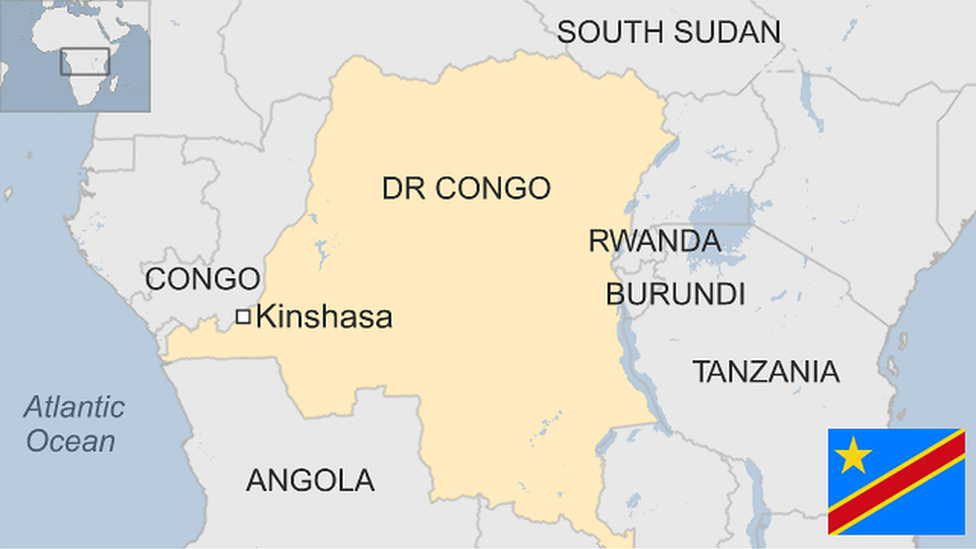DR Congo massacre: 'My daughter was slashed with a machete'
- Published
"Found beside her murdered mother": Horrifying accounts from survivors of a village massacre
BBC Africa editor Fergal Keane writes about the anger and anguish of villagers caught up in the latest spiral of violence in the Democratic Republic of Congo.
A dark line ran across the small, beautiful face. On either side were stitch marks that ran up under the white bandage covering the top of her head. The wound was deep. The scar would be with Rose all of her days.
I was sitting a few feet away, a stranger, someone from another world. But she was without curiosity. It was as if I did not exist at all. As her father said, she was "far away. It's as if she hears and sees nothing."
Like many of the small children of Maze village in north-eastern Ituri province, Rose Mapenzi, aged four, was strapped to her mother's back when the killers struck.
The women were preparing the evening meal when they heard the cries of the attackers. Those carrying children, as well as the elderly, were an easy target. As they stumbled in panic, the machetes hacked and slashed.
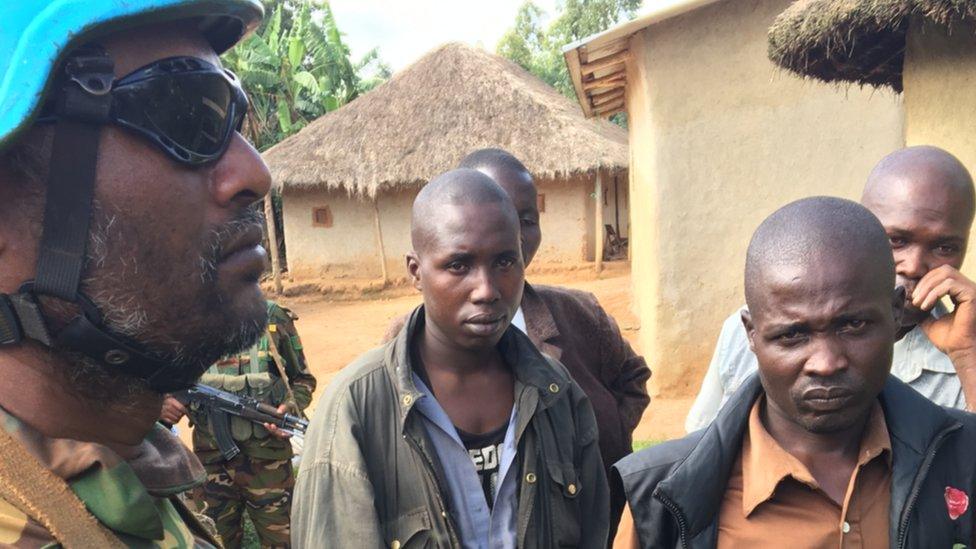
UN peacekeepers are battling to achieve stability in DR Congo
Rose's father, Jeremy, recalled the moment the ethnic Lendu militia overran Maze on 1 March.
"They started to chase us and those who could not run were caught and hacked. This child of mine was wounded but the assailants were in a hurry so they did not finish killing her. Hence she survived," he said.
'Family of 18 buried'
Another man, Malobi Lika, managed to escape with his pregnant wife but saw his sister cut down. Again he described how the killers had hacked at the face and head.
As a senior UN official who visited the scene the following day said: "It was vicious, savage and it was meant to terrorise people."
More than 40 people were killed in the rampage. Their bodies lie in two mass graves in the centre of Maze. Each day fresh bougainvillea are laid, bright violet flowers in memory of the dead.
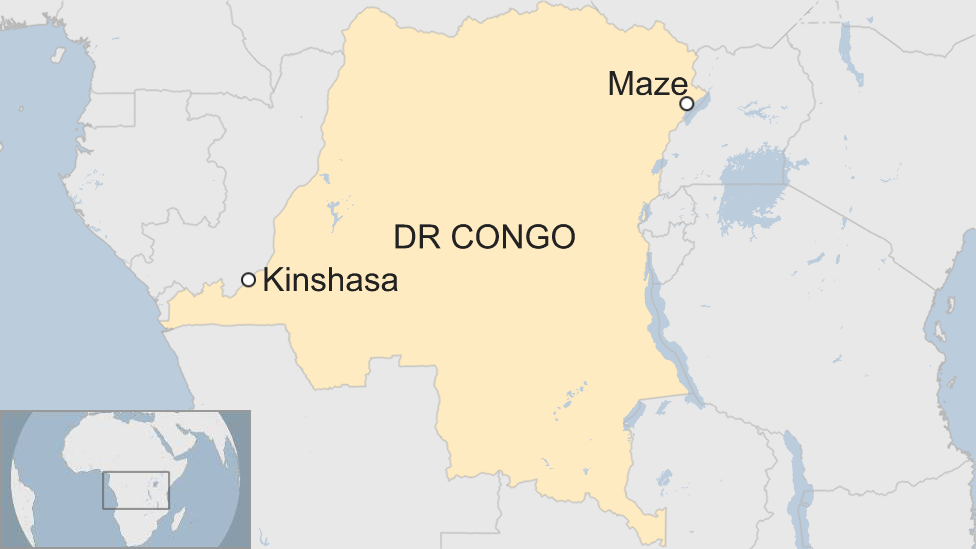
As I stood beside the graves, a group of men came over. One pointed towards the grave and said 18 members of his family were buried there. He gave his name as David and he was angry.
"You come to investigate, people come to investigate. But tell me who is going to be held responsible?
"The people who are dead - who is going to be responsible for that? Who is going to help? People come to annoy us with their recorders but nobody brings a solution. What is the solution? I'm desperate," he said.
David knew the truth of DR Congo. For the mass of the poor there are few signs of hope.
More about DR Congo:
The international community prays that President Joseph Kabila will accede to elections before the end of the year but is preoccupied with North Korea and the Middle East.
There is no appetite for scaling up the UN military presence - at the moment there are just over 15,000 troops in a country the size of western Europe.
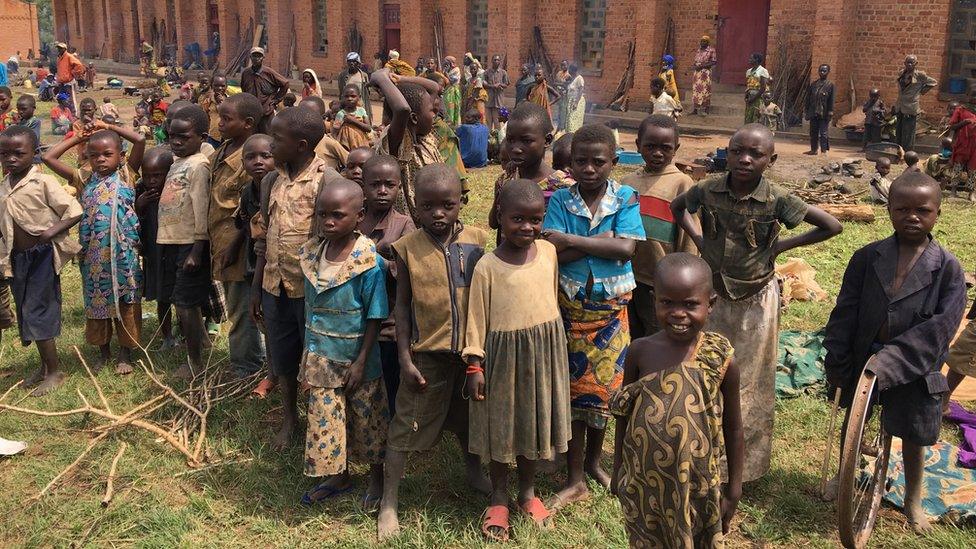
Many children have grown up with violence
The slaughter at Maze was committed by Lendus against the Hema. Survivors told us that the killers had come from a nearby village.
The massacre has bitter antecedents. I first reported on mass killings in this region 15 years ago.
But to label what is happening simply as "ethnic violence" is too reductive. It cannot be separated from current politics and a bloody history stretching to the 19th Century and the age of empire.
'Arbitrary executions'
What was meant to be the hour of freedom from colonialism in 1960 brought a secessionist war. At the same time the CIA plotted the overthrow of the new nation's leader, Patrice Lumumba, and helped deliver into power one of the most corrupt dictators in African history, Mobutu Sese Seko. He ruled through patronage and fear.
After Mobutu came Laurent Kabila - murdered in January 2001 - and then his son Joseph who now clings to power beyond the two terms allowed under the constitution.
The road where everyone is hungry
The elite amass wealth through control of the country's exceptional natural resources. The country - including Ituri - is rich in oil, minerals and precious metals.
Some of DR Congo's African neighbours proved themselves as ruthless as any Western imperialist in exploiting the country's resources. At one stage seven African nations had intervened in DR Congo.
More than four million people were killed in two prolonged wars between the mid-1990s and the early years of the new millennium.
The state is not trusted in Ituri. In the minds of many it represents arbitrary executions and endemic corruption. The worst is expected of state power.

DR Congo's crisis in numbers
13 million people in need of humanitarian assistance
More than 4 million displaced
More than 7 million face severe food insecurity
Two million children at risk of starvation - 12% of cases worldwide
(Source: UN)

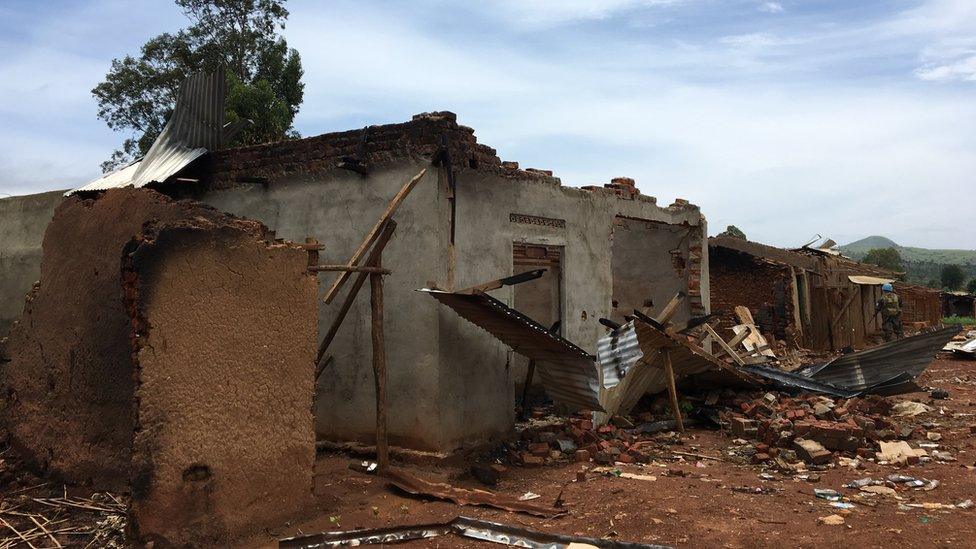
DR Congo has been hit by instability for more than a decade
Rumours abound in Ituri that the massacres were planned, that money and weapons were handed out in an attempt to foment ethnic violence.
The stories are unconfirmed but even before the eruption of violence in Ituri late last year, the opposition was accusing President Kabila of "spreading chaos" in other areas to prevent elections.
I put this to the local governor, Jefferson Abadallah Pene Mbaka. He acknowledged that the police and military had "failed the people" by not protecting them from the massacre.
But he defended the president against any suggestions of manipulation, saying: "I don't think that there could be a head of state, even if he doesn't want elections, who could stir up his population.
"For what reason? So that he would become a super president of the republic? I don't see any reason."
Conflicts in the provinces of Tanganyika, Kasai, in North Kivu and South Kivu have uprooted more than four million people across the country.
The scale of loss in DR Congo is impossible to convey in the existing vocabulary of human suffering.
It is not hard to anticipate a greater tragedy if the present political instability continues.
In a country where millions have already died in conflict, the massacre at Maze is a warning to the world of what can happen as DR Congo slides ever deeper into crisis.
- Published17 February 2018
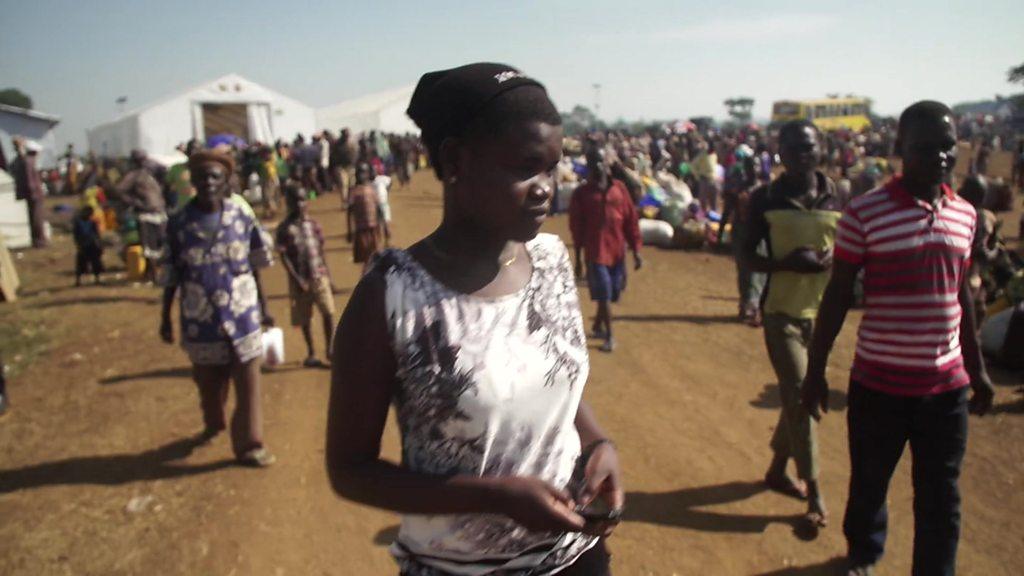
- Published28 January 2018
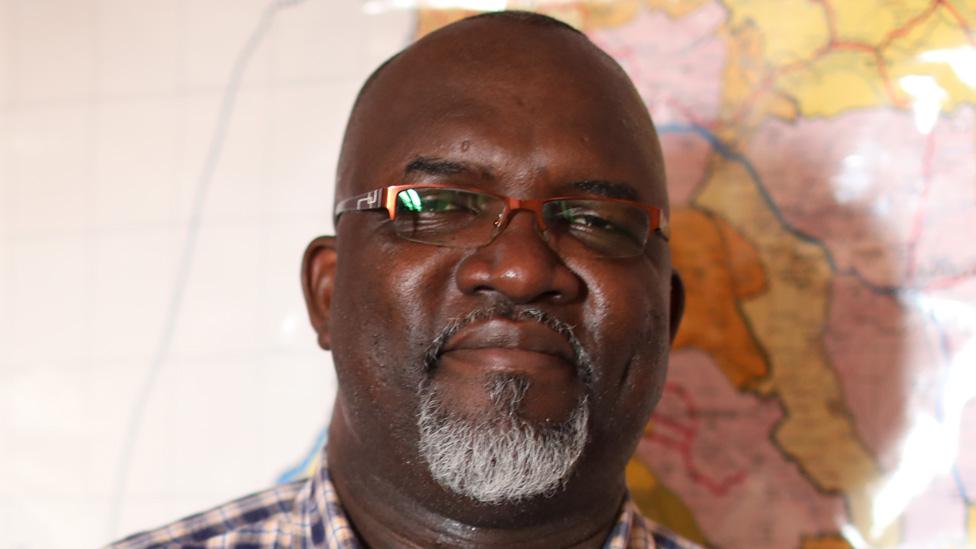
- Published12 December 2017
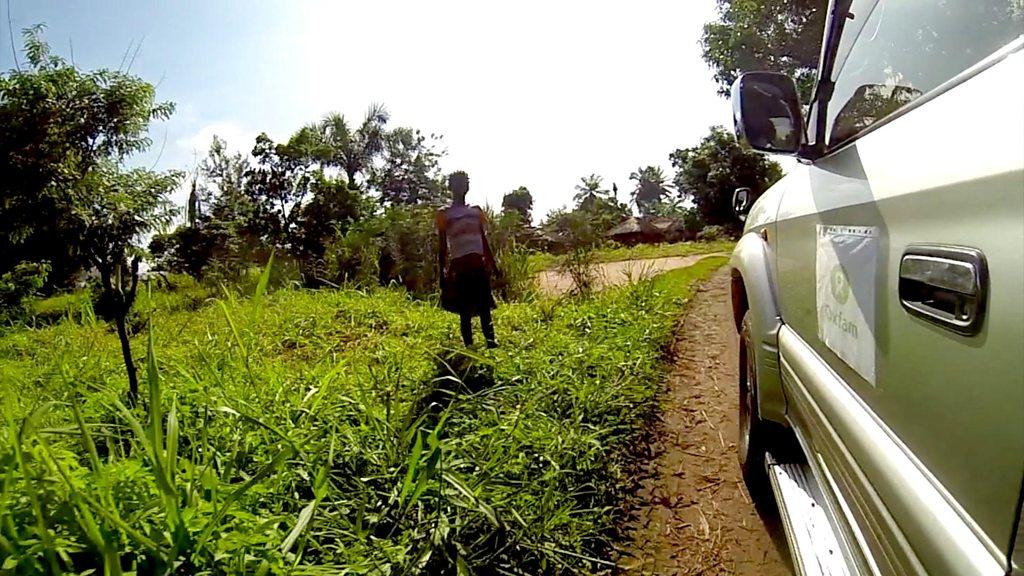
- Published6 December 2017
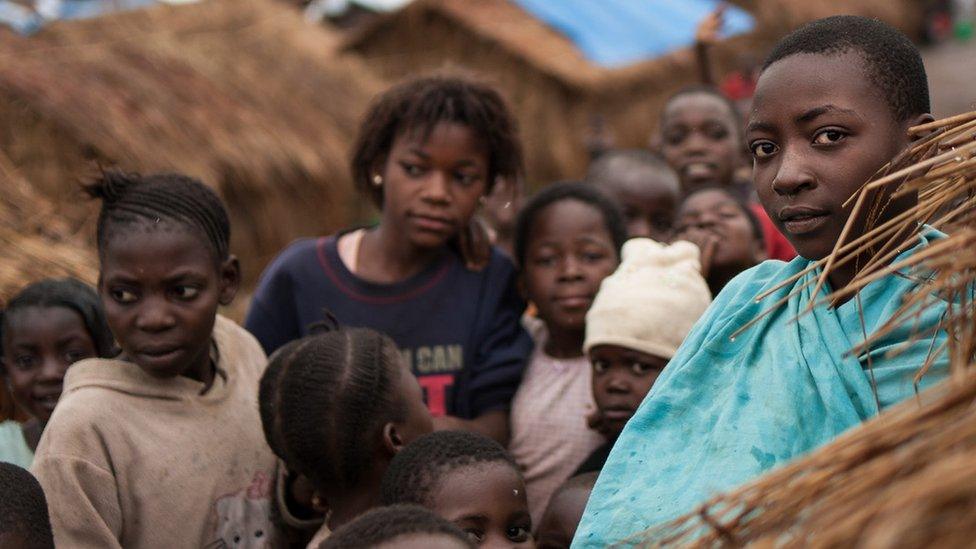
- Published9 October 2013
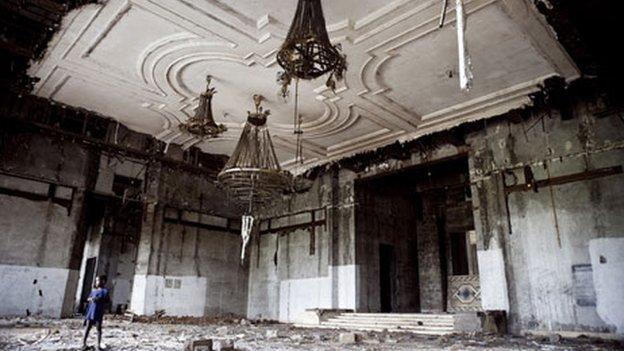
- Published31 January
